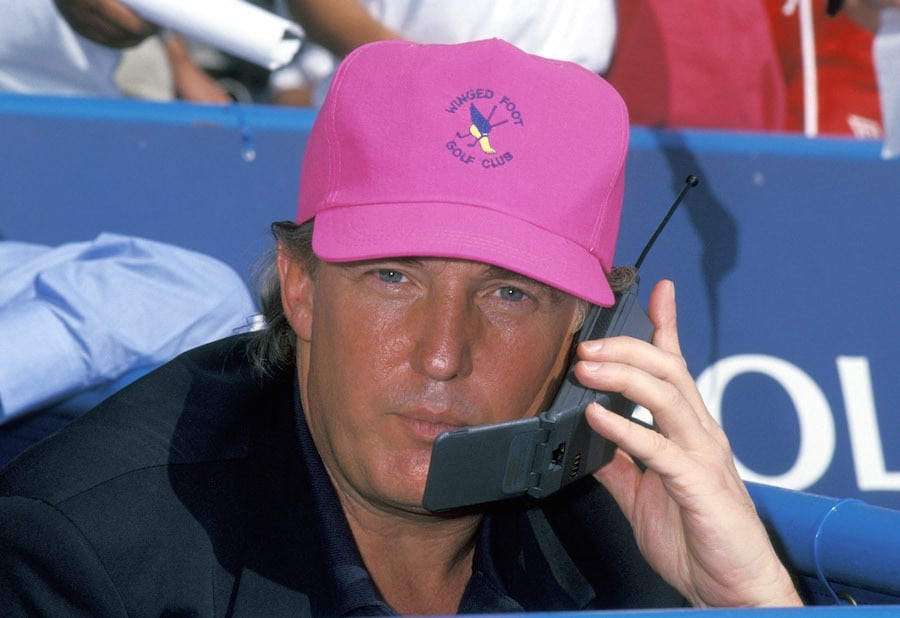November 9 will forever be etched in the annals of history as the event when the most unlikely of candidates- a real estate magnate and a reality TV star- Donald Trump, pulled off a stunning upset in the US presidential elections by defeating the establishment candidate and media favorite Hillary Clinton.
Trump, who has no experience in politics and whose bizarre and abrasive election campaign was considered as a long running joke by most sections of the mainstream media, rode on a wave of support from blue-collar workers and the rural populace to defy expectations and pollsters’ predictions.
The Trump era heralds in a future that is likely to revolve around protectionism, greater focus on fossil fuels such as oil, shale and coal for energy efficiency, increased spending on infrastructure and tighter immigration controls.

Yeah, we have all read and heard about this several times. But what about the technology sector? What will be Trump’s policies on the same? In an election which was mostly defined by name-calling, personal insults and mudslinging of the worst kind that we have ever witnessed, the issues which really mattered took a backseat.
Though Trump’s policies on the tech sector have mostly been vague without any specifics mentioned, we have a rough idea of what all we can expect under the new presidency:
Deregulatory Approach To Telecom, Blow To Net Neutrality
Donald Trump’s telecom policy is ‘tremendously’ difficult to predict since it was rarely discussed during his campaign. However, we do know that Trump is expected to do away with regulatory hurdles in the sector, thus benefiting broadband service providers who felt hassled by new rules imposed by the Federal Communications Commission. Also, Trump isn’t a fan of net neutrality and views it as censorship by authorities.
Donald Trump’s fight against regulation is likely to restrict expansion of broadband across the US. Moreover, his transition team is reportedly going to appoint anti-regulation crusader Jeffrey Eisenach as htheir telecom guy. Eisenach, who wrote a paper titled ‘The Economics of Zero Rating’ in March 2015, argues that ‘broad-based bans or restrictions on Zero Rating plans are likely to be counterproductive and harm consumer welfare’. So net neutrality is a likely goner.
Shot In The Arm For Cyber Security
Citing growing cyber threats from China and North Korea (though I always wonder how a nation like North Korea that has such an insular approach possesses the capability to execute potentially threatening hacks), Trump has vowed to make cyber security a top priority. Though no concrete details have been provided, Trump’s official website lays out a roadmap on how to tackle cyber threats. Quoted verbatim below:
‘Order an immediate review of all U.S. cyber defenses and vulnerabilities, including critical infrastructure, by a Cyber Review Team of individuals from the military, law enforcement, and the private sector.
Instruct the U.S. Department of Justice to create Joint Task Forces throughout the U.S. to coordinate Federal, State, and local law enforcement responses to cyber threats.

Order the Secretary of Defense and Chairman of the Joint Chiefs of Staff to provide recommendations for enhancing U.S. Cyber Command, with a focus on both offense and defense in the cyber domain.
Develop the offensive cyber capabilities we need to deter attacks by both state and non-state actors and, if necessary, to respond appropriately.’
A Trump administration is likely to take cyber threats more seriously, and implement strategic policies to effectively combat them.
‘Cyber threats to both critical infrastructure and financial systems are just the sort of clear and present danger that requires decisive action—the likes of which the president elect has been advocating. This in turn may lead to more aggressive cyber security policies, faster response to cyber attack campaigns, and greater investment in cyber security defenses,’ says Uri Rivner, head of cyber strategy at biometrics firm BioCatch.
Privacy Rights To Be Impacted For National Interest?
After the San Bernardino killings, the FBI asked Apple to introduce a backdoor to its iPhone by weakening the encryption so as to allow the agency to investigate into the shooters. The request was refused by Apple, which stated that the move would undermine privacy of its users. Apple’s stance was backed by the majority of the tech community. Donald Trump, however, had a starkly contrasting view. Sample the following statements:
‘Boycott Apple until such time as they give that information.’ (Campaign rally, February 2016)
‘I would come down so hard on [Apple chief executive Tim Cook] his head would be spinning all of the way back to Silicon Valley.’ (Bloomberg interview, February 2016)
Now we know that Donald Trump is fond of bombastic bluster but if we take his statements on literal terms, be prepared for more state monitoring. Edward Snowden’s explosive revelations about the surveillance powers of the NSA are unlikely to be ignored by Trump, who may actually prefer to give more sweeping powers to the NSA under the excuse of national interest.

For instance, Donald Trump has said that he is keen to restore the Patriot Act, which if you remember, gave NSA powers to collect bulk data on individual phone records before it was scrapped by the Congress.
Concerns have also arisen that federal laws such as the Electronic Communications Privacy Act and the Stored Communications Act are in dire need of updates to address new technologies and usage, while questions are being asked about the applications of the Communications Decency Act.
Scrutiny by the National Labor Relations Board has increased regarding the content of electronic communications, and more than 20 states have passed laws for privacy of social media and online personal accounts.
With the growing use of Big Data, IoT, artificial intelligence in today’s technology-driven world, it remains to be seen what policies the Trump administration comes up with to govern the tech sector. Maybe his Twitter rantings have been mostly a jingoistic strategy to channel into the anxieties of the ignored worker-class, but now it is time to get real.












Leave a Reply